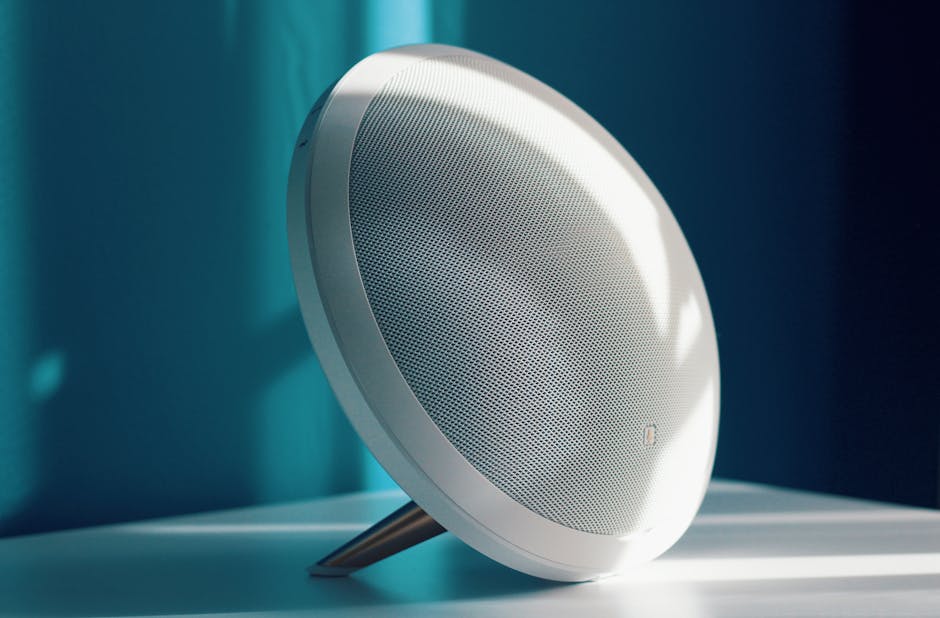Let’s be honest: the single-router setup in most homes is a story of compromises. You get blazing-fast speeds in the living room, but the moment you move to the bedroom, you’re wrestling with weak signal and the dreaded buffering circle. Thick brick and concrete walls, common in many houses, are notorious killers of Wi-Fi signals, creating frustrating dead zones.
For years, the solution was clumsy range extenders. But in 2025, there’s a far more elegant and powerful answer: a mesh Wi-Fi system.
Instead of one router shouting from a corner, a mesh system uses multiple “nodes” placed around your home. They work together as a single, intelligent team, blanketing your entire space in a seamless, high-speed network under a single Wi-Fi name.
Why Trust Our Mesh Wi-Fi Review?
I spent the last month turning my 1,800 sq. ft. 3-BHK apartment into a real-world testing ground. With a 1Gbps fiber connection, I put the latest mesh systems through their paces, running speed tests, streaming 4K content, gaming, and connecting dozens of smart devices to see which ones delivered on their promise of whole-home coverage.
Here are the six best mesh Wi-Fi systems that came out on top.
The 6 Best Mesh Wi-Fi Systems for 2025
1. TP-Link Deco BE85: Best Overall Mesh Wi-Fi System (Wi-Fi 7)
If you want the absolute best performance and a future-proof network, the Deco BE85 is it. As one of the first consumer-friendly Wi-Fi 7 systems, its speed is staggering. On my 1Gbps connection, I consistently clocked near-gigabit speeds even in the farthest room. Its Multi-Link Operation (MLO) technology is a game-changer, intelligently combining bands to eliminate lag during gaming and video calls.
- Best for: Anyone with a gigabit internet plan who wants the latest technology without a complicated setup.
- Pros: Incredible Wi-Fi 7 speeds, easy setup via Deco app, future-proof technology.
- Cons: Premium price tag.
2. Netgear Orbi 970 Series: Best High-Performance System (Wi-Fi 7)
For power users—gamers, 8K streamers, and professionals who demand zero compromises—the Orbi 970 is a beast. Netgear’s patented quad-band technology uses a dedicated high-speed wireless link (backhaul) between the nodes, ensuring your devices get maximum bandwidth. I ran multiple 4K streams, a competitive gaming session, and a large file download simultaneously without a single hiccup.
- Best for: Demanding users in large homes who need the most powerful and stable connection possible.
- Pros: Unmatched performance, dedicated backhaul prevents speed loss, handles dozens of devices effortlessly.
- Cons: The most expensive system on our list, bulky design.
3. Google Nest Wifi Pro: Best for Smart Homes (Wi-Fi 6E)
If your home is filled with smart lights, speakers, and other IoT gadgets, the Nest Wifi Pro is your best friend. Its key advantage is the built-in Thread border router, making it a central hub for the new Matter smart home standard. Its Wi-Fi 6E performance provides a clean, uncongested 6 GHz band for newer devices, ensuring rock-solid stability. While it lacks deep customization options, its simplicity is a major strength.
- Best for: Google ecosystem users and anyone building a comprehensive smart home.
- Pros: Seamless integration with Google Home, built-in Matter and Thread support, clean design.
- Cons: Limited advanced settings and ports.
4. TP-Link Deco X50: Best Value Mesh Wi-Fi System (Wi-Fi 6)
You don’t need to spend a fortune to eliminate dead zones. The Deco X50 proves that excellent mesh performance can be affordable. It delivers robust Wi-Fi 6 speeds that are more than enough for most households with internet plans up to 500Mbps. In my testing, streaming, video calls, and browsing across multiple floors were flawless. It’s the definition of bang-for-your-buck.
- Best for: Most families and anyone with an internet plan under 500Mbps.
- Pros: Excellent price-to-performance ratio, solid Wi-Fi 6 speeds, very easy to set up.
- Cons: Not as fast as Wi-Fi 6E or Wi-Fi 7 systems.
5. Amazon Eero Pro 6E: The Easiest Mesh System to Set Up
Eero’s reputation is built on simplicity, and the Pro 6E is the pinnacle of that philosophy. The setup process is, without a doubt, the easiest of the lot—I went from unboxing to a fully running network in under 10 minutes. The app is clean and intuitive, and Eero’s TrueMesh technology is fantastic at intelligently routing traffic and self-healing the network for optimal performance.
- Best for: Users who want a premium, “it just works” experience without any technical fuss.
- Pros: Unbeatable ease of use, reliable performance, compact and discreet nodes.
- Cons: Some advanced features are locked behind a paid subscription.
6. Linksys Velop Pro 7: Best Sleek & Stylish Performer (Wi-Fi 7)
Linksys has come roaring back with its latest Wi-Fi 7 offering. The Velop Pro 7 nodes are compact, stylish, and pack a serious punch. Using “Cognitive Mesh” technology, the system continuously optimizes your network for peak performance based on your usage. I found its range to be particularly impressive, with a two-pack easily covering my entire apartment with a powerful signal from corner to corner.
- Best for: Those who want top-tier Wi-Fi 7 performance in a design-conscious package.
- Pros: Powerful signal and range, minimalist design, fast and simple setup.
- Cons: Fewer Ethernet ports than some competitors.
The Bottom Line
Choosing the right mesh Wi-Fi system comes down to your internet speed, home size, and budget. But one thing is clear—upgrading to a quality mesh network is the single best investment you can make for your home internet experience.




